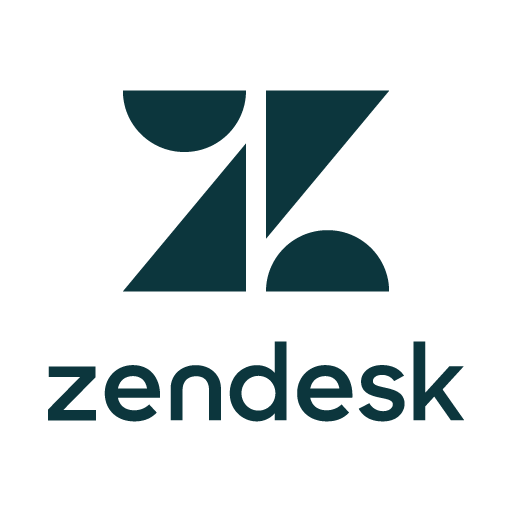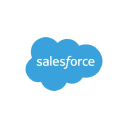On Building An SSO Platform
My name is Deepak Gupta. I am the co-founder and CTO of LoginRadius and built the LoginRadius Identity Platform from scratch and architected this platform to scale globally. My co-founder Rakesh and I started the company in 2014.
LoginRadius has grown in the last six years from a start-up to a leading Authentication and Single Sign-in (SSO) product that secures more than one billion digital identities worldwide. As a provider of a fully managed cloud CIAM solution, LoginRadius prioritizes seamless authentication and single sign-on for online and mobile applications. Our client base is spread out through a variety of industries such as media and publications, retail and consumer goods, and travel and hospitality, and as such, LoginRadius recognizes the need for a highly flexible and adaptable platform that can expand with our customers as they grow.
LoginRadius has focused its efforts on developing a robust network that consistently provides hundreds of millions of users with industry-leading availability and security for customers. Serving more than 150,000 developers and with a monthly reach of 1 billion users worldwide, LoginRadius strives to maintain the 100 percent uptime benchmark to ensure seamless communication and usability at all times.

What's your backstory and how did you come up with the idea?
Rakesh and I have been friends since high school when we bonded over our interest in technology and entrepreneurship. Since then, we’ve worked together on a couple of projects. Most of them didn’t pan out, but it was while working on one of these projects that we came up with the inspiration for LoginRadius.
While developing the login system for a couple of different web applications, Rakesh and I realized what a hassle it would be for users to register, between filling out long forms and remembering yet another set of username and password. In order to simplify the task for the end-user and developer, we decided to create a simplified and secure login experience and integrated this feature into our new project. Thus the concept of LoginRadius was born. We began developing it as a separate product in 2014.
We were hesitant to take the risk and quit our jobs, but these opportunities may only come once in a lifetime, and you have to grab onto them if you really feel passionate about the idea or product.
We quickly realized there was a need for this product since almost as soon as we launched the private beta, a number of businesses started using the product. That’s when we decided to put our other ideas and web applications on hold to focus on this authentication product.
The core authentication product was developed with the goal of simplifying how businesses can interact with their customers from around the world easily and effectively in this age of globalization. The company's cloud-hosted infrastructure offers a database with trillions of customer identities for safe management and transaction while preserving privacy and ensuring compliance with local regulations.
Until Loginradius, I had been in the software business for nearly 5 years and before that, I was part of another SaaS software firm as an Application Development Engineer for 3 years. I come from a technical background with a specialization in cybersecurity; I got my B.S. from an engineering college in India and my M.S. in Information Technology and Management from the Illinois Institute of Technology, Chicago. I command a broad range of technical fields such as web development, database design, computer networks, and security.
Take us through the process of designing, prototyping, and manufacturing your first product.
When we first started developing the authentication product, we did a lot of research online to see what features the MVP should have. I have a strong background in technology, I have a software developer background, so the initial product was built completely by me. We worked on the UX/UI on our own with a small MVP product. I have a good understanding of how to build a secure infrastructure, so it was easy to build out the initial product. We also talked to a lot of our initial customers for feedback and incorporated their ideas into the platform.

We bootstrapped initially and used our own money for hosting servers, other software and products, and design and UI. Later some friends helped us out with informal friends and family investment rounds, and with their help, we were able to hire some additional folks to help with the workload.

Describe the process of launching the business.
In 2013, we launched the beta version of LoginRadius with free trials for developers. When we started to get recognition, we decided to leave our job and joined an accelerator program called FounderFuel, located in Montreal, where we learned a lot.
Unlike other products, we were lucky enough to have customers right from the first week after launching with the private beta. We did some early marketing efforts right after launch; the key focus was to showcase the product use cases and pain points. Once businesses started seeing these use cases, they quickly understood the need for our product and we had a lot of early customers who then provided feedback and ideas to us.

Early on, it was a bootstrapped business. Rakesh and I fully funded it on our own, until we got our first paying customers.
Lesson learned - LoginRadius started as an evening project for both Rakesh and myself, but if you really believe in the idea and the product, you shouldn’t do it part-time and jump wholeheartedly into it. It took us a few months to start focusing on it full-time since initially, we were hesitant to take the risk and quit our jobs. Opportunities like this may only come once in a lifetime, and you have to grab onto them when you get a chance if you really feel passionate about the idea or product.
Since launch, what has worked to attract and retain customers?
The key focus should always be solving key problems. Listen to your customers and their pain points, do a lot of focus groups, and shape up the product based on the market requirements. Pain points are evolving, so you need to make sure your product evolves with your customers. To attract new customers, put your product in different marketplaces.

Our product is a developer-focused product, so we developed easy to use plugins and libraries for developers to consume, and published those plugins and libraries into popular marketplaces such as Drupal and Wordpress. That helped quite a bit early on to attract customers.
Focus on building the customer base and solving real problems. The money will come if the product solves the pain.
How are you doing today and what does the future look like?
We have seen an impressive year-over-year employee growth in the last 6 years and currently have around 120 employees operating from the US, Canada, and India. Today, we have placed ourselves as the technology and innovation leader in the customer identity ecosystem. Our technology is used by 150,000 developers (expanding exponentially), and our platform has a reach of over a billion users per month around the globe.
Aside from that, I have to say that one of our key accomplishments is achieving 100% global uptime consistently in the last three years. Speaking of data protection measures, we have achieved many global security compliances, including ISO 27001, ISO 27017, ISO 27018, NIST CSF, etc.
Coming to future goals, with data comes the responsibility to protect our customers. We are drivers of continuous innovation and aim to increase the security for our customers multifold in the coming years. We are also strengthening our research and development.
We aim to develop next-generation products and further innovate our platform with artificial intelligence, machine learning, and blockchain technology. Soon, we are going to be the center of evolution and establish LoginRadius as the overall leader in customer identity management space. We are also planning to double the business operations team headcount by 2021 and expand the platform user reach in the next 18 months.
Through starting the business, have you learned anything particularly helpful or advantageous?
Getting a little tripped up here and there is natural. As a startup, we made some mistakes and learned from them. For example, we did not focus as much on hiring senior talents in the beginning.
Next, when you start, you usually start with the MVP comprising a small feature set. On the contrary, we grew the product too quickly and added too many features, way too early. We should've focused more on customer pain points or commonly requested products instead of one-off solutions for one or two customers.
Also, on the developer front, we focused a lot more than it is required. There is a strong online developer community where they can provide valuable feedback for the tools or products they like or even contribute small components to the platform. Though we inclined to developer engagement initially, we slowed down on this initiative later on. However, we are back on track now. After realizing the value developers can provide, we are working to provide an amazing developer experience and support so that they can quickly get help when needed. The company can grow in the long run.
We also made some good decisions. For example, the quality of products has always mattered a lot to us – after all, it is what drives business. We make sure that our product infrastructure has to be really good. Even though we build fewer features, we ensure that the ones we have are rock solid.
We have also learned that to earn maximum profit, one should rely on the company's cash rather than investor's money. We have always had a robust unit economics strategy with our finances so that we can grow the company and product at a good pace.
What platform/tools do you use for your business?
We are a developer-focused SaaS platform, so we have a lot of technical employees. I, as the CTO, am supportive of developer tools and the developer community as a whole. We consume a lot of open source solutions and also contribute back to these communities. Some of the key developer tools we use are Node JS, elastic search, Reddis, Golang, ASP.net, MongoDB, etc.
By using these tools, we are strengthening the developer ecosystem in a mutually beneficial way. We use tools developed by 3rd party developers, who then incorporate LoginRadius’ authentication and SSO products into their tools.
LoginRadius has adapted proactive security controls to identify and detect the emerging digital threats before they occur. We have implemented a layered security approach to mitigate & prevent information security threats which constitute risks to the customers, data, and our organization. We use SaaS products such as Salesforce, Zendesk, Intercom, Google Analytics, etc.
What have been the most influential books, podcasts, or other resources?
Books make you smarter. They have always had a great influence on my life and workspace. Books like Start With Why by Simon Sinek, The Lean Startup by Eric Ries, and Founders at Work by Jessica Livingston have inspired me and compelled me to change my perspective on things.
Advice for other entrepreneurs who want to get started or are just starting out?
It is important to have a solid product that solves a key pain point for your customers, and everything else will follow. Having an innovative product that will add value to your customers is what will make a company successful.
Don’t chase after investor money at the beginning. Focus on building the customer base and solving real problems. The money will come if the product solves the pain. I see a lot of founders try to raise money early on and focus a lot of their time doing that, but that shouldn’t be your priority at an early stage.
Are you looking to hire for certain positions right now?
Because of COVID-19 and the resulting economic downturn, the business growth opportunities have slowed down. However, we are still recruiting for some positions in our Engineering, Marketing, and Customer Success departments. Specifically, we are looking for talented developers and DevOps folks for our engineering team, and senior marketers for our marketing team.
Where can we go to learn more?
To learn more about the LoginRadius Identity Platform, you can visit our website. We also have an identity blog where we share industry updates and discuss new technologies. You can also connect with us on platforms like LinkedIn, Twitter, and YouTube.

Download the report and join our email newsletter packed with business ideas and money-making opportunities, backed by real-life case studies.

Download the report and join our email newsletter packed with business ideas and money-making opportunities, backed by real-life case studies.

Download the report and join our email newsletter packed with business ideas and money-making opportunities, backed by real-life case studies.

Download the report and join our email newsletter packed with business ideas and money-making opportunities, backed by real-life case studies.

Download the report and join our email newsletter packed with business ideas and money-making opportunities, backed by real-life case studies.

Download the report and join our email newsletter packed with business ideas and money-making opportunities, backed by real-life case studies.

Download the report and join our email newsletter packed with business ideas and money-making opportunities, backed by real-life case studies.

Download the report and join our email newsletter packed with business ideas and money-making opportunities, backed by real-life case studies.





